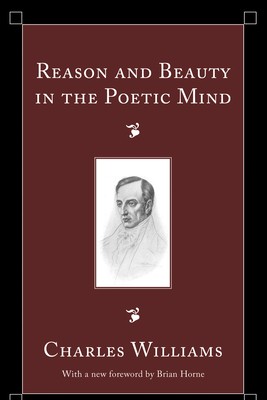
- We will send in 10–14 business days.
- Author: Charles Williams
- Publisher: Wipf & Stock Publishers
- Year: 2008
- Pages: 186
- ISBN-10: 1556355548
- ISBN-13: 9781556355547
- Format: 14.4 x 21.5 x 1.1 cm, minkšti viršeliai
- Language: English
- SAVE -10% with code: EXTRA
Reviews
Description
Reason and Beauty in the Poetic Mind focuses upon the two intertwined themes of Reason and Beauty as they are expressed poetically in English literature. It begins with a chapter on the unique characteristics of poetic creation, ""The Ostentation of Verse,"" and then unfolds in an alternating pattern, analyzing the distinctive appearances of these two concepts in writers as various as William Wordsworth (Reason), Christopher Marlowe (Beauty), Alexander Pope (Reason), John Keats (Beauty), and John Milton (Reason). In the climactic penultimate chapter, there is a meditation on William Shakespeare's depiction of what the author calls ""the actual schism in Reason."" There follows a brief coda that moves beyond the confines of poetry to a contemplation of the wider religious dimensions that the literary investigation has opened up. ""Williams's deeper interest was in the way the nature of the act of poetic creation could be grasped from the reading of the poems themselves and the means by which the artists reached into and spoke from the hidden places of their imaginative power. . . . [These two books] will enable us to re-appraise, or perhaps encounter for the first time, the distinctive qualities of Charles Williams's approach to the art that was at the centre of his own creative life, poetry."" Brian Horne, from his new 2007 foreword Author and scholar Charles Williams (1886-1945) joined, in 1908, the staff of the Oxford University Press, the publishing house in which he worked for the rest of his life. Throughout these years, poetry, novels, plays, biographies, history, literary criticism, and theology poured from his pen. At the beginning of the Second World War the publishing house was evacuated to Oxford where, in addition to his own writing and his editorial work for the Press, he taught in the University.
EXTRA 10 % discount with code: EXTRA
The promotion ends in 23d.07:39:33
The discount code is valid when purchasing from 10 €. Discounts do not stack.
- Author: Charles Williams
- Publisher: Wipf & Stock Publishers
- Year: 2008
- Pages: 186
- ISBN-10: 1556355548
- ISBN-13: 9781556355547
- Format: 14.4 x 21.5 x 1.1 cm, minkšti viršeliai
- Language: English English
Reason and Beauty in the Poetic Mind focuses upon the two intertwined themes of Reason and Beauty as they are expressed poetically in English literature. It begins with a chapter on the unique characteristics of poetic creation, ""The Ostentation of Verse,"" and then unfolds in an alternating pattern, analyzing the distinctive appearances of these two concepts in writers as various as William Wordsworth (Reason), Christopher Marlowe (Beauty), Alexander Pope (Reason), John Keats (Beauty), and John Milton (Reason). In the climactic penultimate chapter, there is a meditation on William Shakespeare's depiction of what the author calls ""the actual schism in Reason."" There follows a brief coda that moves beyond the confines of poetry to a contemplation of the wider religious dimensions that the literary investigation has opened up. ""Williams's deeper interest was in the way the nature of the act of poetic creation could be grasped from the reading of the poems themselves and the means by which the artists reached into and spoke from the hidden places of their imaginative power. . . . [These two books] will enable us to re-appraise, or perhaps encounter for the first time, the distinctive qualities of Charles Williams's approach to the art that was at the centre of his own creative life, poetry."" Brian Horne, from his new 2007 foreword Author and scholar Charles Williams (1886-1945) joined, in 1908, the staff of the Oxford University Press, the publishing house in which he worked for the rest of his life. Throughout these years, poetry, novels, plays, biographies, history, literary criticism, and theology poured from his pen. At the beginning of the Second World War the publishing house was evacuated to Oxford where, in addition to his own writing and his editorial work for the Press, he taught in the University.


Reviews